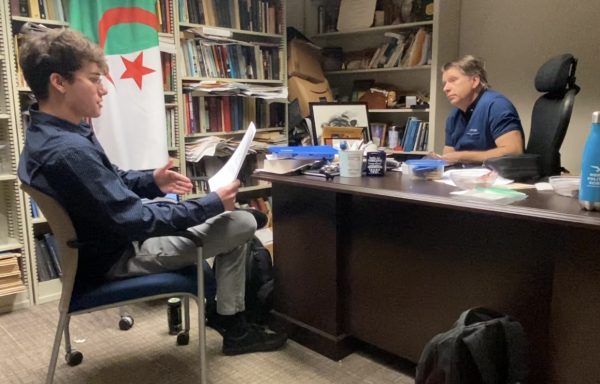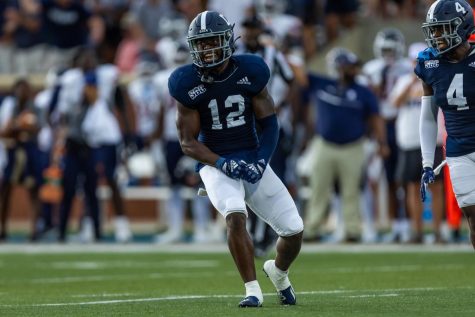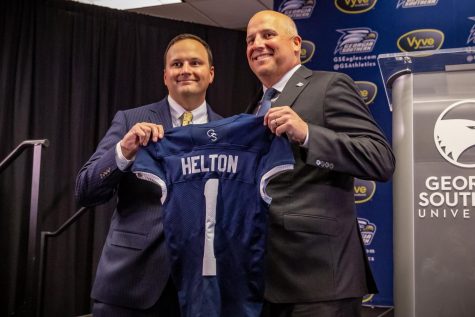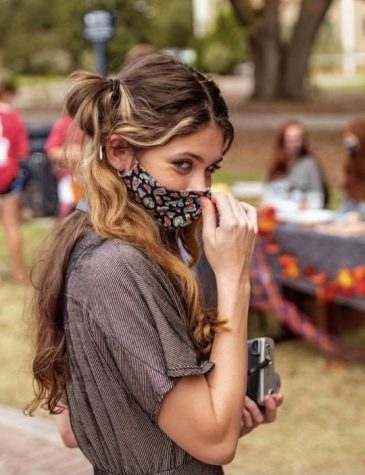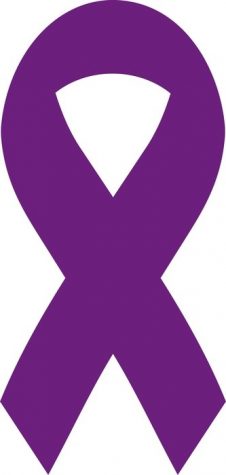Journalism Is Publishing What Others Won’t
December 1, 2016
An Introduction to Wikileaks
Wikileaks is a non-profit media organization that publishes leaked documents and secret information that it receives from a number of anonymous sources.
Founded in 2006, Wikileaks has since published over 10 million secret documents, which is actually more than the rest of the world’s media combined.
Having recently celebrated their tenth birthday, Wikileaks came out with a list of what they consider to be their 10 most important leaks.
This list includes, but is not limited to:
- The Guantanamo Bay files, which exposed the gross mistreatment of U.S. military prisoners at Guantanamo Bay in Cuba
- The famous ‘Collateral Murder’ video, which showed American Apache helicopter pilots killing 18 Iraqis, including two journalists, and then laughing about it
- The NSA files, which exposed the National Security Agency for illegally spying on world leaders, and more recently, the DNC leaks, which showed that the Democratic National Committee colluded with the Hillary Clinton campaign in order to undermine Bernie Sanders’ chances at winning the Democratic nomination
- The Iraq and Afghanistan war logs, which exposed an unprecedented number of civilian deaths at the hands of the U.S. military, and were the biggest leak of information in American military history
We Open Governments
These leaked documents have allowed us to better understand the way the world’s power structures work and the way our political, military and corporate leaders operate.
Wikileaks is a firm believer in the democratization of information, hence their slogan, ‘We open governments’, and the subsequent impact that this forced transparency has on the people to which that information is relevant.
For as much as they emphasize transparency for those who are in positions of power, they actually operate in a very clandestine manner.
There are only a few figures within the organization that are known to the public, and they always maintain a sense of anonymity regarding their sources.
Their main argument for this secrecy is because of the nature of their work; what they are doing, after all, is illegal in virtually every country in the world.
Most of its opponents point to their law-breaking as a sort of inherent sign that what they’re doing is wrong, but there are plenty of cases throughout history in which the law is not synonymous with that which is morally right.
In most cases, its critics aren’t concerned with the law, as many of Wikileaks’ secret documents expose, but concerned rather with maintaining their positions of power and the existential threat that Wikileaks poses to them.
Unlike any other media organization, they offer no interpretation or analysis of the information that they publish.
They don’t have reporters who decide what is newsworthy or anchors to try and help people understand what they’ve seen.
In a sense, they are the only true journalistic enterprise left in a world of increasingly partisan journalists and media outlets.
Podesta Emails
If you’ve been tuned in to the U.S. presidential election, you’ve more than likely seen Wikileaks in the news once again.
They recently began releasing the ‘The Podesta Emails’, which is a series of correspondences between John Podesta, the current Chairman of the Hillary Clinton campaign and former Chief of Staff of Bill Clinton, Counselor to Barack Obama and former president of the Center For American Progress, and a number of powerful political operatives, journalists and corporate representatives.
These e-mails have exposed Hillary Clinton and her associates in a series of unbelievable corruption and deception.
Here are just a few examples of the conflicts of interest and sketchy-dealings involving Hillary Clinton, which have all been confirmed by The Podesta Emails:
Hillary Clinton intentionally kept 55,000 emails from Congress after being subpoenaed for maintaining a private e-mail server, potentially compromising classified information and putting our national security at risk.
A number of private Hillary Clinton speeches that made such proclamations as ‘We are going to ring China with missile defense’ and ‘One must have a public position and a private one’.
Donna Brazille, a former CNN employee, and current DNC chair, sent Hillary Clinton debate questions prior to a debate with Bernie Sanders.
Julian Assange
The founder and editor-in-chief of Wikileaks, Julian Assange, has been stranded in the Ecuadorian embassy in London since 2012.
He applied for political asylum to Ecuador after the U.S. began to investigate Wikileaks and Assange for their ‘crimes’, and many American officials openly called for his assassination.
Ecuador granted him asylum, but he has been unable to leave their embassy because of a legitimate fear that he will be immediately arrested after stepping foot outside of the building.
Assange has lived in constant fear for his life for those four years inside the embassy, and given Wikileaks’ most recent endeavors, perhaps he has seen that fear come to its highest point in 2016.
He recently cancelled an appearance for a press conference on a balcony at the embassy because he was worried that he might be shot in the process.
Multiple sources state that U.S. Secretary of State John Kerry asked Ecuador to prevent Assange from publishing documents relating to Hillary Clinton because he and Wikileaks were actually effecting the U.S. presidential election.
Ecuador has been pressured into restricting Assange’s internet access, and finally caved to that pressure a few days ago.











